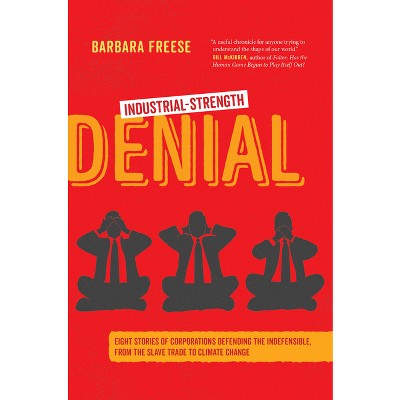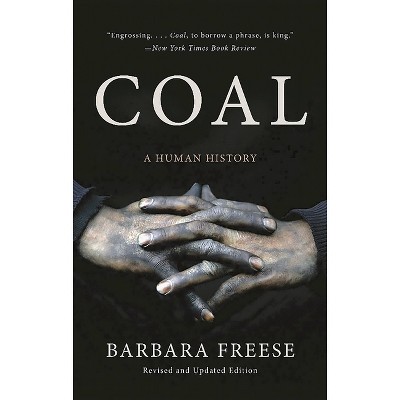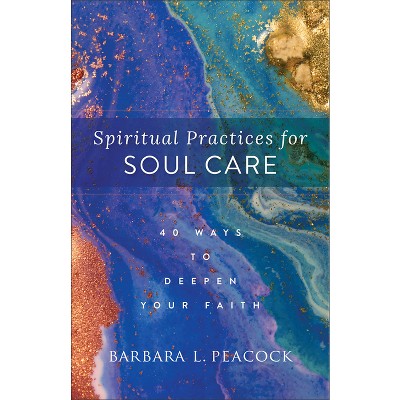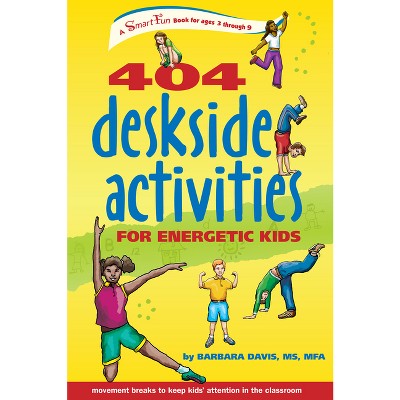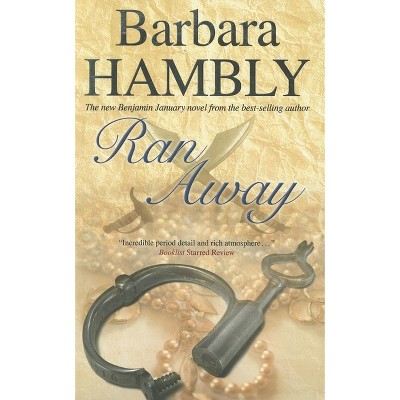About this item
Highlights
- How corporate denial harms our world and continues to threaten our future.
- About the Author: Barbara Freese is the author of Coal: A Human History, a New York Times Notable Book.
- 352 Pages
- Business + Money Management, Infrastructure
Description
About the Book
"This book tells the stories of eight major campaigns of corporate denial--the lies, delusions, and rationalizations that emerge when people working in competitive, profit-driven group enterprises are faced with powerful evidence that they are causing harm. Tobacco is the poster-child of this phenomenon, but denial comes from people selling many other risky products, creating workplace hazards, or releasing dangerous pollutants. In almost every case, the story begins with an exciting discovery--of, for example, a New World, a new element or chemical, a new means of mass production, or a new way of packaging financial risk. An industry races to exploit that discovery and succeeds, sometimes changing society along the way. And in each case this commercial activity causes a grave harm, to other people or the planet. Those outside the industry find evidence of this harm, raise the alarm, and a public debate ensues. Corporate representatives offer a flurry of denials, perpetuating the harm by blocking policies that would reduce it. The specific denials-which are the focus of this book-vary, but the themes echo from campaign to campaign. The stories in this book stand as a reminder of why corporate activity needs to be monitored, challenged, and regulated"--Book Synopsis
How corporate denial harms our world and continues to threaten our future.
Corporations faced with proof that they are hurting people or the planet have a long history of denying evidence, blaming victims, complaining of witch hunts, attacking their critics' motives, and otherwise rationalizing their harmful activities. Denial campaigns have let corporations continue dangerous practices that cause widespread suffering, death, and environmental destruction. And, by undermining social trust in science and government, corporate denial has made it harder for our democracy to function. Barbara Freese, an environmental attorney, confronted corporate denial years ago when cross-examining coal industry witnesses who were disputing the science of climate change. She set out to discover how far from reality corporate denial had led society in the past and what damage it had done. Her resulting, deeply-researched book is an epic tour through eight campaigns of denial waged by industries defending the slave trade, radium consumption, unsafe cars, leaded gasoline, ozone-destroying chemicals, tobacco, the investment products that caused the financial crisis, and the fossil fuels destabilizing our climate. Some of the denials are appalling (slave ships are festive). Some are absurd (nicotine is not addictive). Some are dangerously comforting (natural systems prevent ozone depletion). Together they reveal much about the group dynamics of delusion and deception. Industrial-Strength Denial delves into the larger social dramas surrounding these denials, including how people outside the industries fought back using evidence and the tools of democracy. It also explores what it is about the corporation itself that reliably promotes such denial, drawing on psychological research into how cognition and morality are altered by tribalism, power, conflict, anonymity, social norms, market ideology, and of course, money. Industrial-Strength Denial warns that the corporate form gives people tremendous power to inadvertently cause harm while making it especially hard for them to recognize and feel responsible for that harm.From the Back Cover
"A must-read for anyone wanting to understand the truth about corporate-created untruths, this engaging, painstakingly researched, and elegantly written book is crucial for helping us see through profit-driven narratives designed with the explicit aim of distorting and deceiving. Industrial-Strength Denial reveals the cynicism, manipulation, and hypocrisy of corporations seeking to rationalize patently destructive (though profitable) practices, such as slavery or selling toxic chemicals, tobacco, and fossil fuels."--Joel Bakan, author of The Corporation: The Pathological Pursuit of Profit and Power "How much easier it would be to change the world if it weren't for the endless, organized lying of companies that make their money from the indefensible. This is such a useful chronicle for anyone trying to understand the shape of our world."--Bill McKibben, author of Falter: Has the Human Game Begun to Play Itself Out? "This book's originality is in Freese's use of psychological theory and insights to explain corporate behavior that seems simply venal or self-serving."--Gerald Markowitz, Distinguished Professor of History, John Jay College of Criminal Justice and the Graduate Center, City University of New YorkReview Quotes
"Succeeds in providing a fascinating, well-documented, intelligently structured and morally instructive account of some cleverly selected and patently egregious cases of precisely the kind of 'self-deception' and 'hypocrisy' that . . . have been preoccupying Western ethicists for generations."
-- "European Legacy""An exhaustive chronicle of white-collar true crime."
-- "Los Angeles Review of Books"
"A detailed look at how corporations faced with evidence that they're ruining the earth have found a way to distort the truth and pump out propaganda that supports their business."--Joe Rogan, "Joe Rogan Experience"
About the Author
Barbara Freese is the author of Coal: A Human History, a New York Times Notable Book. She is an environmental attorney and a former Minnesota assistant attorney general. Her interest in corporate denial was sparked by cross-examining coal industry witnesses disputing the science of climate change. She lives in St. Paul.







